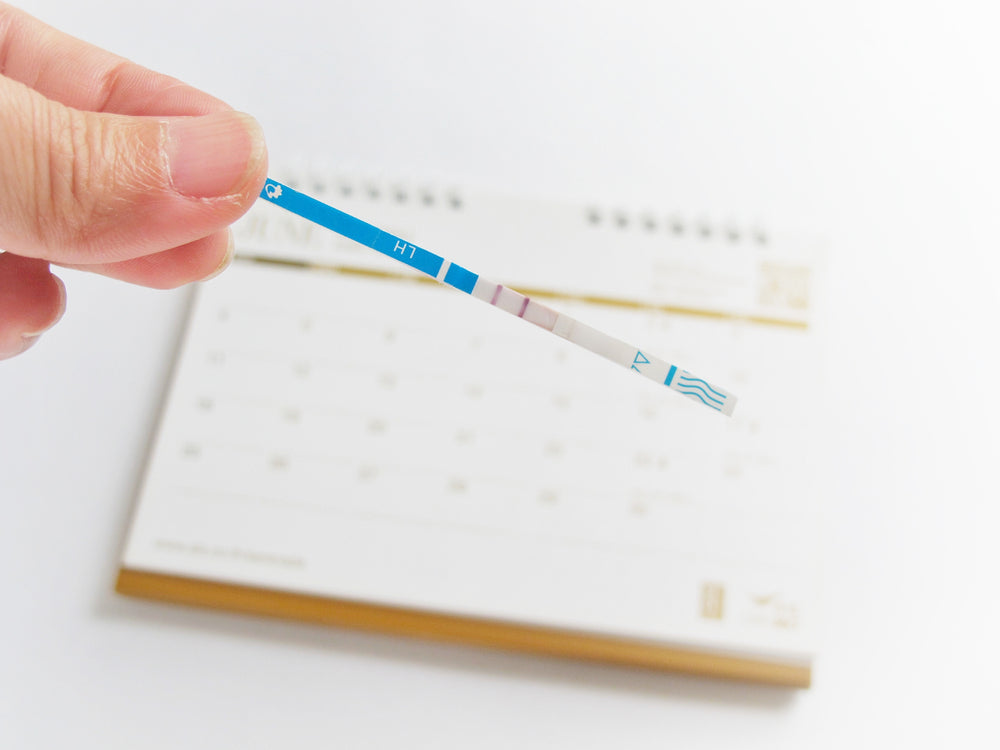Ovulation tests results accuracy
Several factors can affect the results of ovulation tests, potentially leading to false positives or false negatives. It's important to be aware of these factors to interpret the results accurately:
- Timing of testing: Ovulation tests detect the surge in luteinising hormone (LH) that precedes ovulation. The best time to test is usually in the late morning or early afternoon. Testing too early in the day or too late in the day may affect the accuracy of the results. If you test first thing in the morning you are more likely to miss the LH surge.
- Menstrual irregularities: Women with irregular menstrual cycles may find it challenging to predict ovulation accurately. Inconsistent cycle lengths can make it difficult to determine the optimal time for testing.
- Medications and hormonal supplements: Certain medications, including fertility drugs and hormonal supplements, can impact LH levels and affect the accuracy of ovulation tests. It's essential to discuss any medications with a healthcare provider if you're using ovulation tests.
- Health conditions: Some medical conditions, such as polycystic ovary syndrome (PCOS), can affect hormonal levels and interfere with the reliability of ovulation tests. If you have underlying health conditions, it's advisable to consult with a healthcare professional.
- Dehydration: Inadequate hydration can potentially affect the concentration of hormones in urine, which may influence ovulation test results. Staying well-hydrated can help ensure more accurate readings.
- Premature ovulation surge: Some women may experience a brief LH surge that does not result in ovulation. Testing too infrequently or missing this surge can lead to false negatives.
- Multiple LH surges: Some women may experience more than one LH surge during their menstrual cycle. Testing multiple times a day or using digital ovulation tests that measure oestrogen levels in addition to LH can help capture these surges.
- Recent pregnancy or breastfeeding: Pregnancy and breastfeeding can affect hormonal levels, including LH, potentially impacting ovulation test results.
- Menopause and perimenopause can affect ovulation test results. Perimenopause is the transitional period leading up to menopause, during which the ovaries gradually produce fewer eggs and hormonal fluctuations become more pronounced. Menopause is defined as the cessation of menstruation and marks the end of the reproductive years. As women enter perimenopause and progress towards menopause, the regularity and predictability of the menstrual cycle often change. Ovulation becomes less frequent and irregular, and the hormonal patterns may vary. Ovulation tests, which detect the surge in luteinising hormone (LH) that precedes ovulation, may yield different results during perimenopause and menopause. In perimenopause, some women may experience sporadic and unpredictable surges in LH, making it challenging to accurately predict ovulation. As menopause approaches and ovarian function decreases, the likelihood of ovulation decreases, and ovulation tests may show consistently low or negative results. If you are in perimenopause or suspect you are approaching menopause, it's advisable to consult with a healthcare professional for guidance on fertility tracking and reproductive health during this transitional phase. Menopause tests which measure FSH can help you identify if you are in perimenopause.
It's important to use ovulation predictor tests as part of a broader strategy for tracking fertility, incorporating other methods such as monitoring basal body temperature, cervical mucus, and other signs. If you have concerns or are having difficulty interpreting ovulation test results, consulting with a healthcare professional can provide personalized guidance based on your specific situation.

